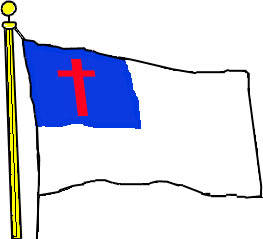robocombot
Disciple
I believe in one God,
the Father Almighty,
maker of heaven and earth,
and of all things visible and invisible;
And in one Lord Jesus Christ,
the only begotten Son of God,
begotten of his Father before all worlds,
God of God, Light of Light,
very God of very God,
begotten, not made,
being of one substance with the Father;
by whom all things were made;
who for us men and for our salvation
came down from heaven,
and was incarnate by the Holy Ghost
of the Virgin Mary,
and was made man;
and was crucified also for us under Pontius Pilate;
he suffered and was buried;
and the third day he rose again
according to the Scriptures,
and ascended into heaven,
and sitteth on the right hand of the Father;
and he shall come again, with glory,
to judge both the quick and the dead;
whose kingdom shall have no end.
And I believe in the Holy Ghost the Lord, and Giver of Live,
who proceedeth from the Father [and the Son];
who with the Father and the Son together
is worshipped and glorified;
who spake by the Prophets.
And I believe one holy Catholic and Apostolic Church;
I acknowledge one baptism for the remission of sins;
and I look for the resurrection of the dead,
and the life of the world to come. AMEN.
Catholic Church does NOT just mean the Roman Catholics, but includes RC, Orthodox, Prodestant: http://www.iclnet.org/pub/resources/text/history/creed.church.txt
"Probably the first Christians to use the term Catholic were simply
distinguishing the entire Church worldwide from particular
congregations. If you said something about the Church, they would
ask, 'Do you mean the Church in Corinth, or the Church Catholic?'"
Obviously this thread only applies to those who profess to be Christians.
the Father Almighty,
maker of heaven and earth,
and of all things visible and invisible;
And in one Lord Jesus Christ,
the only begotten Son of God,
begotten of his Father before all worlds,
God of God, Light of Light,
very God of very God,
begotten, not made,
being of one substance with the Father;
by whom all things were made;
who for us men and for our salvation
came down from heaven,
and was incarnate by the Holy Ghost
of the Virgin Mary,
and was made man;
and was crucified also for us under Pontius Pilate;
he suffered and was buried;
and the third day he rose again
according to the Scriptures,
and ascended into heaven,
and sitteth on the right hand of the Father;
and he shall come again, with glory,
to judge both the quick and the dead;
whose kingdom shall have no end.
And I believe in the Holy Ghost the Lord, and Giver of Live,
who proceedeth from the Father [and the Son];
who with the Father and the Son together
is worshipped and glorified;
who spake by the Prophets.
And I believe one holy Catholic and Apostolic Church;
I acknowledge one baptism for the remission of sins;
and I look for the resurrection of the dead,
and the life of the world to come. AMEN.
Catholic Church does NOT just mean the Roman Catholics, but includes RC, Orthodox, Prodestant: http://www.iclnet.org/pub/resources/text/history/creed.church.txt
"Probably the first Christians to use the term Catholic were simply
distinguishing the entire Church worldwide from particular
congregations. If you said something about the Church, they would
ask, 'Do you mean the Church in Corinth, or the Church Catholic?'"
Obviously this thread only applies to those who profess to be Christians.

